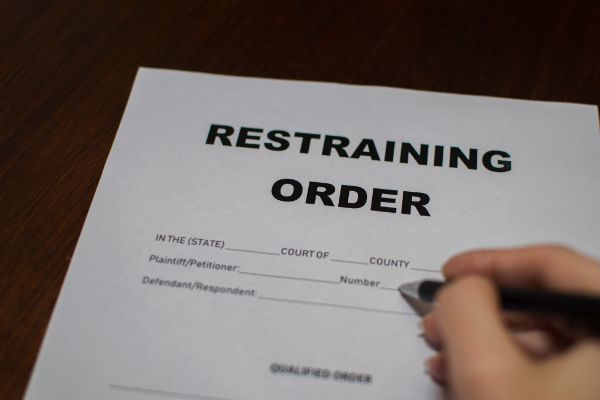California restraining orders are available to help people in various circumstances. For example, Todd’s partner, Zach, has threatened him with violence, shoved him during arguments, and violently pulled his hair. Amanda has suffered the same kind of behavior but from her former roommate. At age 78, Dan is trying to live in his own home for as long as possible, but his grandson has been stealing his possessions and money. Finally, Maryann’s boss at the diner noticed a customer was stalking Maryann at work and waiting for her in the parking lot. A restraining order might help any of these individuals feel more protected. In fact, there are four different types of California restraining orders.
#1. Domestic Violence
The definition of domestic violence is actually more broad than most people realize. Domestic violence can come from someone in your household or someone with whom you have had an intimate relationship and includes:
- Physical abuse,
- Sexual assault,
- Threatening or promising to hurt you,
- Harassing, stalking, threatening, hitting, disturbing the peace, or destroying your personal property.
A domestic violence restraining order can help protect you from your abuser. If you feel you need help, contact a family law attorney immediately to see how you can file for this type of restraining order.
#2. Civil Harassment
Although similar to domestic violence, civil harassment is committed by people who don’t fit the ‘domestic’ criteria. For example, you may be civilly harassed by distant family members, co-workers, neighbors, and roommates.
The behavior is essentially the same and includes credible threats. In other words, your neighbor might threaten to hurt you but has not physically done anything yet. You could ask the court for a civil harassment restraining order against your neighbor to prevent the neighbor from following through.
#3. Elder or Dependent Adult Abuse
Unfortunately, some people like to hurt some of the most vulnerable members of society – elderly people or dependent adults. This type of abuse can take the form of:
- Physical and emotional abuse;
- Financial abuse; and
- Abandonment, neglect, and isolation
Elder or dependent adult abuse restraining orders may be issued to protect dependent adults and people who are at least 65 years old.
#4: Workplace Violence
Typically, the victim asks the court for a restraining order, but workplace violence restraining orders are different.
If violence or credible threats of violence are made against employees, the employer requests the restraining order. However, the employer should be able to prove at least one of these elements:
- An employee has been assaulted or stalked or threatened with violence;
- It’s reasonable to expect that the violence of threat of violence will happen or has happened in the workplace.
- The person accused of workplace violence is not engaged in any constitutionally protected activity at the time.
An employee who needs protection may also file a domestic violence, civil harassment, or elder abuse restraining order on their own.
California Restraining Orders Sometimes Lead to California Divorces
Unfortunately, some people who file for divorce also need to file for one or more restraining orders. Talk to an experienced California divorce attorney today. Please call us at (415) 293-8314 to schedule a confidential appointment with one of our attorneys.
Please call us at 415-293-8314 to discuss your case. The attorneys at the Law Offices of Judy L. Burger assist clients with divorce matters in San Francisco, Beverly Hills, Marin County, Santa Barbara, Ventura/Oxnard, San Diego, San Jose, Gold River (Sacramento), and surrounding communities.


